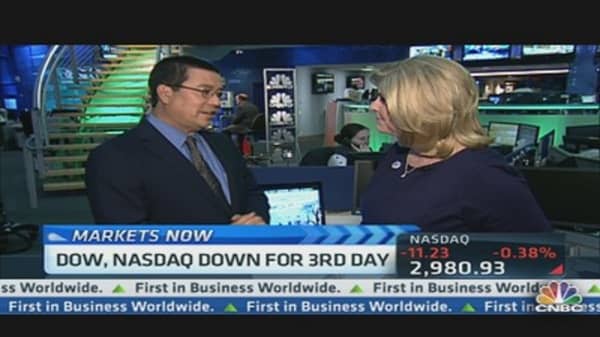Stocks ended near session lows in light volume trading Friday, dragged by techs, as investors remained on the sidelines ahead of the weekend amid ongoing worries over the looming "fiscal cliff."
All three major averages finished in the red for the week.
"You see many investors pulling money off the table going into the weekend simply because of how volatile the news is and of course, we have a ticking time bomb in terms of the amount of time we actually have to get a fiscal deal," said Michael Yoshikami, founder and CEO of Destination Wealth Management.





